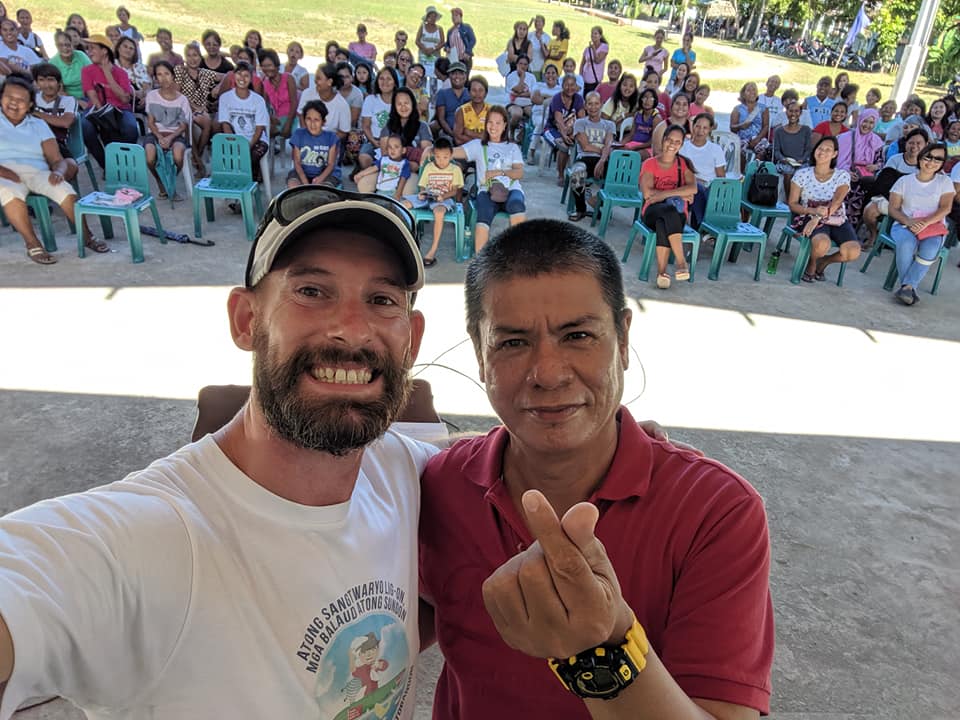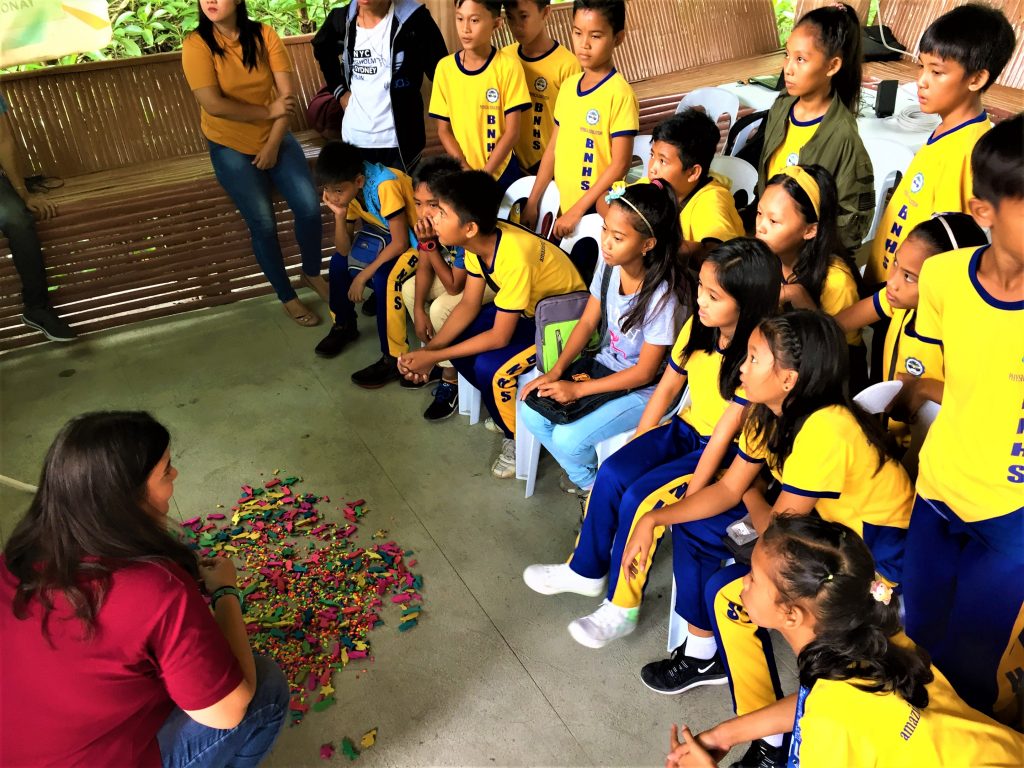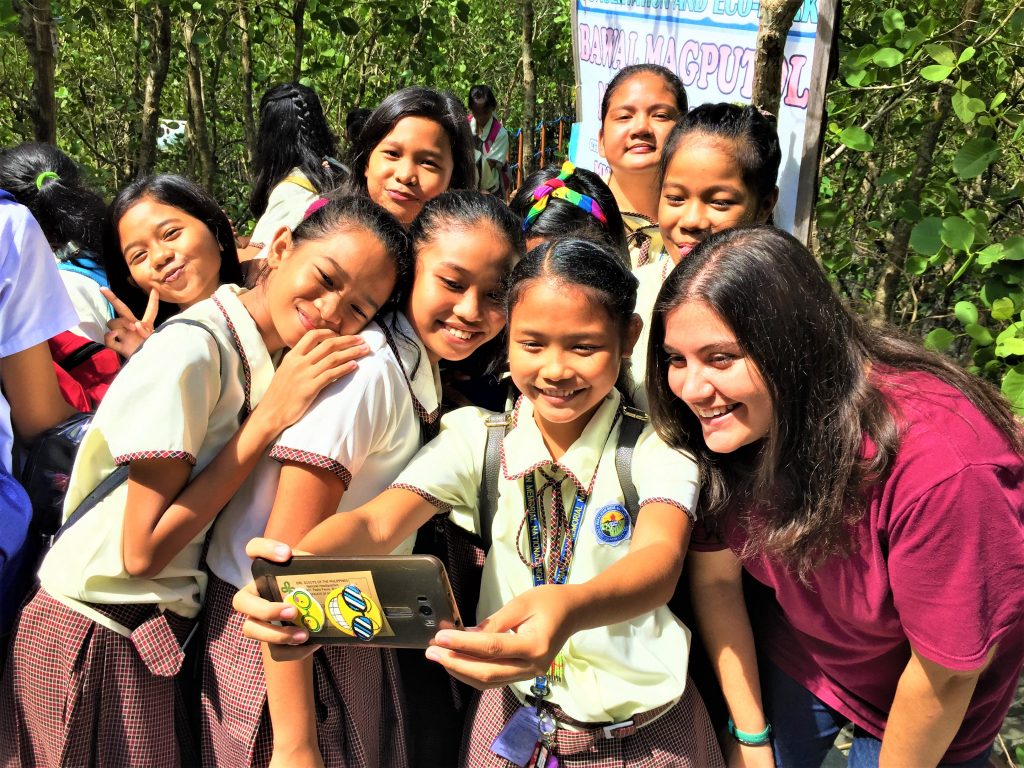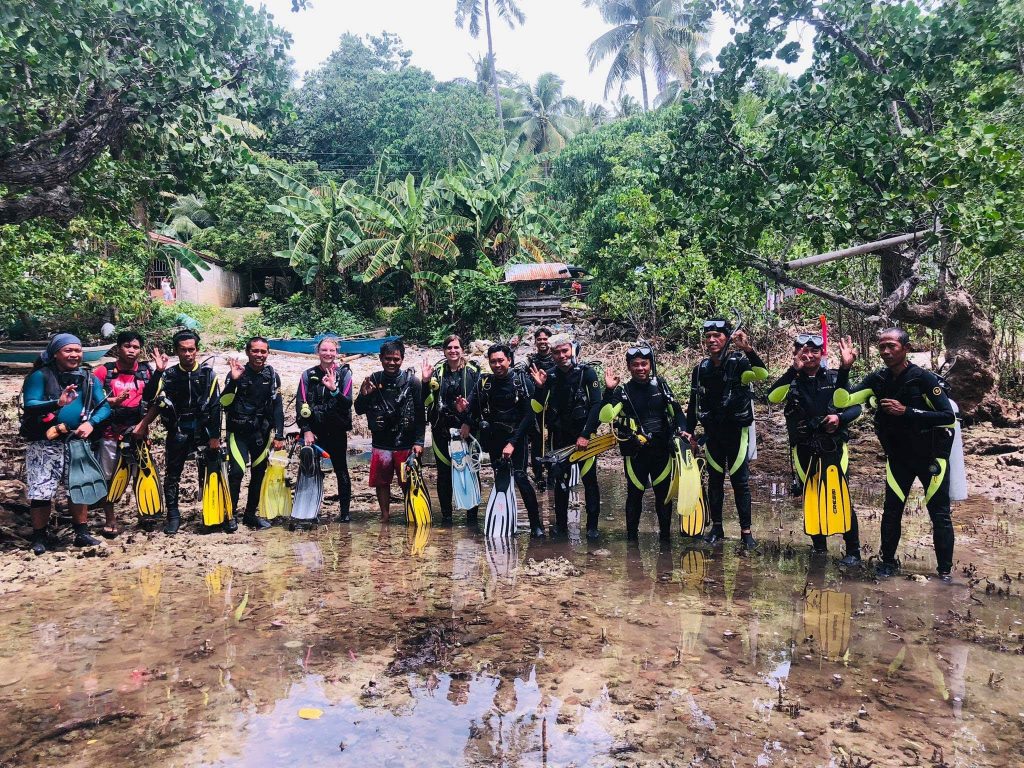Scaling up Sustainable Fisheries through the Rare-Peace Corps partnership

As a Peace Corps volunteer supporting coastal resource management in St. Bernard town in Southern Leyte, Scott McGuire needed tools for facilitation that would be useful in gauging the level of awareness within the community. One of the tools that he found effective was Fisher Cards, which he used during courtesy calls in coastal villages and would often lead to candid discussions about difficult topics.
“I divided participants into groups of eight, gave them opposite sets of cards, and asked them which phrases represented their community—a clean beach for example, versus trash on the beach,” he said. Scott was also able to teach officials from a neighboring municipality how to use Fisher Cards to create baseline assessments of their marine resources.
Scott is one of the Peace Corps volunteers assigned to coastal resource management projects who was introduced to Rare’s learning strategies during their pre-service training, before deployment to their communities. During their stint, United States Peace Corps volunteers typically perform a range of support tasks that include reviewing ordinances, gathering data, performing resource assessments, running environmental education campaigns, and organizing community groups.
In 2016, Rare signed an agreement with Peace Corps to share resources and skills in helping coastal fishing communities sustain their marine resources and fisheries. Rare trainers taught the volunteers how to use tools such as Fisher Cards, which is used to start conversations about marine protected areas, and the role-playing Fish Game.

In the island town of Pilar in Cebu province, Municipal Planning and Development Officer Susan Cataylo says the local government is fortunate to be working with groups that are providing technical expertise and assisting in public awareness campaigns to improve fisheries resource management in the tiny municipality.
Cataylo has been working closely with Rare and Peace Corps over the past five years and can attest to the benefits from the partnership. Among the contributions of Peace Corps volunteers to the Fish Forever campaign are the mapping and geotagging of the municipality’s managed access area; accessing funds for radio equipment that is used to report intrusions in Pilar’s marine sanctuary and municipal waters; and creating an eco-brick and rice exchange program that serves as an incentive for residents to join coastal clean-up efforts.
“In areas where political support and funding are absent, a skilled Peace Corps volunteer can truly make a difference,” she says. Using coastal resource management strategies and tools developed by Rare, the volunteers have expanded the reach of sustainable fisheries campaigns to many more coastal municipalities.

In the Municipality of Calapan in Oriental Mindoro province, Holly Ziemer discovered a new way of using the Fish Game, a set of activities that uses simple objects to educate players about coastal fisheries and marine protected areas. During the annual Environmental Awareness Time or “EAT” activity, she joins municipal staff and around 50 local students when they visit Calapan’s award-winning Silonay Mangrove Eco-Park. “Most of the students are not from coastal communities,” says Clark Bautista, Ziemer’s local counterpart, “so we use the Fish Game to make them aware of what it is like to be part of one.”
A recent study commissioned by Rare Philippines showed that its collaboration with local governments and Peace Corps volunteers in the last five years has resulted in measurable benefits for small-scale fishing communities. Survey respondents linked the partnership to improved coastal resource management including increased fish catch, higher fisher registration, and more financially resilient communities. Marine protected areas have gained recognition from the Para El Mar awards after gaining fish biomass and higher percentage of coral reefs, seagrass meadows, and mangrove forests. More enlightened communities also led to decreased illegal fishing activities and violation of fisheries laws.

By working together with coastal communities, the collaboration between Peace Corps and Rare has seen both small and big wins that can be easily replicated in more towns. Maeghan Connor, who volunteered in Poro near Pilar from 2018 to 2020, says her counterparts in the local government were able to facilitate the Fish Game after she led their first workshop. “My office was already passionate in the first place but lacked certain resources, and now they have these great tools to increase collaboration between the LGU and the coastal community,” she says.
McGuire agrees, noting that he found the training tools from Rare to be effective in building the capacity of fishing communities to manage their marine resources. “In the future, I think multiple touchpoints between Rare and Peace Corps would be a great way to remind volunteers of the depth of Rare resources at their fingertips,” he says.
Rare was scheduled to train a new batch of volunteers on coastal and fisheries resource management in June 2020, but like many activities, it was canceled due to the coronavirus pandemic. Now on the fifth and final year of their partnership, Peace Corps and Rare are still in touch with their partner communities. They continue to find ways to work together in pursuit of their shared goals for coastal and fisheries management.
All photos are c/o the volunteers.